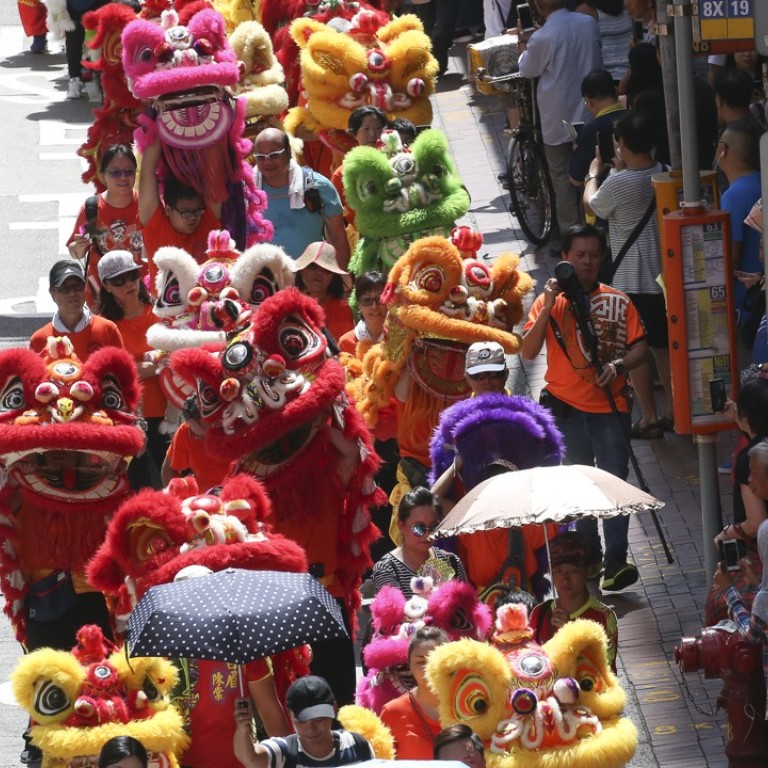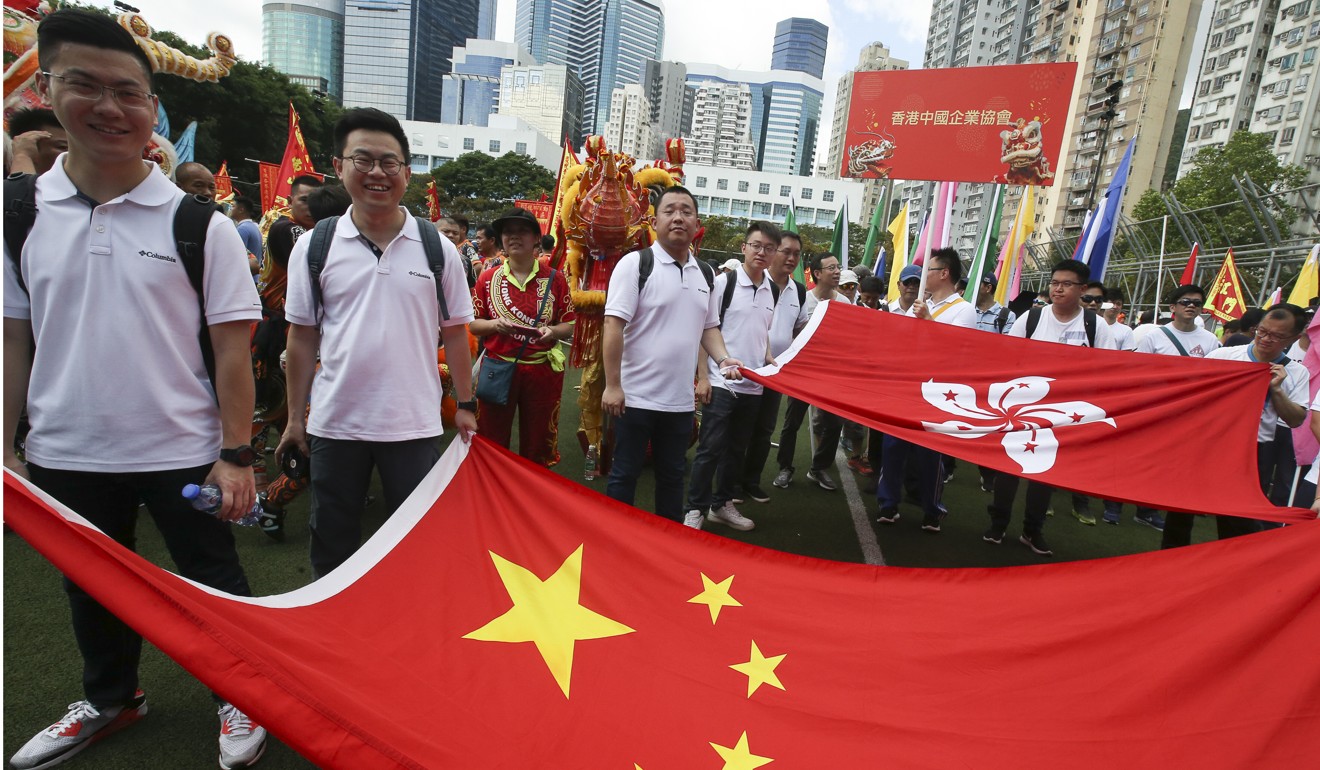
Celebrations to mark anniversary of Hong Kong’s return to China give attendees chance to display love of country
Hundreds of people enjoy events such as lion dance performances organised by Hong Kong Celebrations Association, an umbrella group of about 40 pro-Beijing societies
While tens of thousands of people took to the streets on Sunday to protest at the “fall” of Hong Kong, others chose to celebrate the 21st anniversary of the city’s return to China.
In the city’s iconic Victoria Park, hundreds of people enjoyed events such as lion dance performances organised by the Hong Kong Celebrations Association, an umbrella group of about 40 pro-Beijing societies.
Among them was businessman Ricky Wong She-chin, who said that Hongkongers must learn more about their motherland before they judge the country.

“You just can’t judge China before you really get to know it,” Wong, who attended the event with more than 10 of his neighbours in Quarry Bay, said.
“As a local who was born and grew up in this city, I love Hong Kong. But that doesn’t contradict the fact that I love my motherland.”
July 1 marchers defy police warnings, cutting in away from official start
Speaking at a ceremony on Sunday morning, Lam said that under her leadership public trust in the government had been rebuilt and rational discussion restored in the Legislative Council. She said that “the best is yet to come for Hong Kong” as long as people remain focused and stand united.
According to the University of Hong Kong’s public opinion programme, her support rating was 54.3 out of 100 last month, compared to 61 in her first month in office.
For the second consecutive year, the association was given priority to use the park’s six soccer pitches to host celebrations for three days from Friday. The organiser of the protest, the Civil Human Rights Front, had applied to use the pitches as the starting point of the march. But its request was rejected, forcing the group to use the small lawn next to pitches instead.

The march’s theme this year was “End one-party dictatorship, reject the fall of Hong Kong”.
A man in the park, surnamed Ning, 55, took a day off work to join the celebrations.
“One of the biggest problems since the handover is that the city’s government has not yet implemented anti-colonisation and decolonisation policies, which has resulted in the pro-independence sentiments in Hong Kong,” said Ning, who was wearing a hat with the Chinese national flag stitched on it.
Housing the focus, but Carrie Lam has not forgotten national security law
Leung said he and a lot of his friends felt “powerless” after Occupy Central, and subsequently felt detached from social movements afterwards.
Jaydon Wong, a member of a 30-strong dragon dance team, had mixed feelings about the handover.
“Young people from my generation don’t have deep feelings about the handover,” the 23-year-old said. “I came here to enjoy a party, to perform a dragon dance for the public.”


